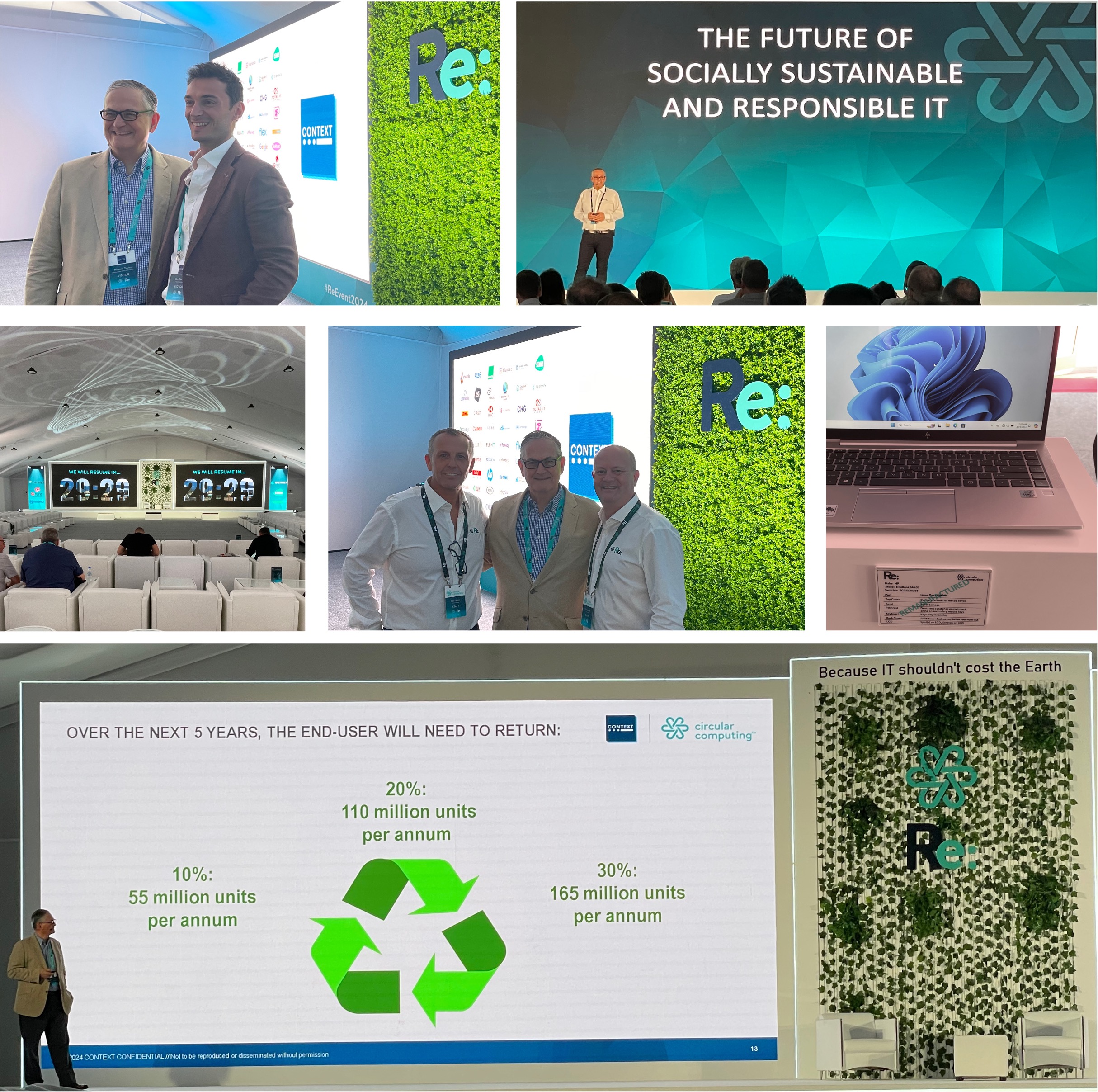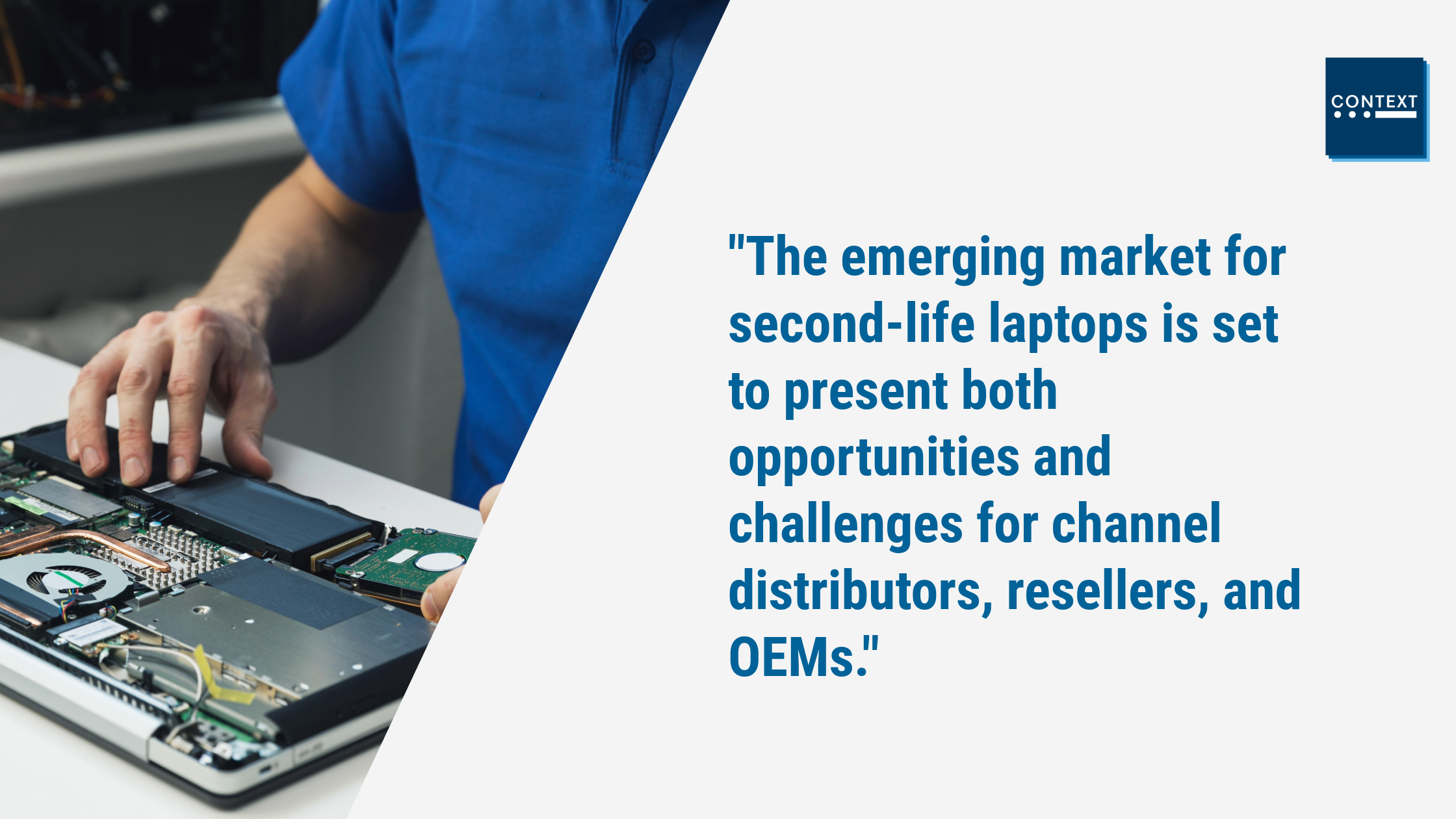In April, CONTEXT led a keynote during a workshop at
the RE: A Sustainable IT
Summit - in Dubai.
The summit was a platform for sharing crucial
industry facts and sparking discussions around sustainable IT
solutions. CONTEXT delivered a truly insightful and interactive
keynote session which highlighted the diverse impacts of sustainable
practises within the technology channel, laying the groundwork for
meaningful conversations about the future of the industry.
One of the key points highlighted by CONTEXT was
the necessity for quality, standardised data to drive effective
decision–making in the realm of sustainable IT. With Environmental,
Social, and Governance (ESG) considerations taking centre stage,
electronics channel players are facing increasing pressure to respond
to compliance mandates and customer demands. However, a lack of
comprehensive data has hindered their ability to make informed choices.
In response to this challenge, CONTEXT is
pioneering innovative solutions to empower distributors and resellers
in the industry, including a Product ESG Database. This
database aims to provide detailed carbon footprint and ecolabel data
at both product range and SKU levels. By offering easy access to ESG
information, distributors and resellers can make informed decisions
that are aligned with environmental goals. In addition to this CONTEXT
has begun tracking the Refurbished and Remanufactured Product
Market, in response to the growing importance of second–life
products. This initiative provides stakeholders with the necessary
information to navigate the market for refurbished and remanufactured
products effectively.
At the heart of the summit was a
thought–provoking keynote delivered by Howard Davies, CEO &
co–founder of CONTEXT. Howard urged attendees to explore the
potential of sustainable IT within their organisations. He discussed
the exciting possibilities of remanufactured laptops in increasing
channel margins, challenging conventional notions of circularity in
technology.
The summit led to several key takeaways
The emerging market for second–life laptops is
set to present both opportunities and challenges for channel
distributors, resellers, and OEMs. While second–life products could
offer additional margin opportunities for distributors and
resellers, there’s a concern that it may reduce revenues for OEMs.
However, the overall market is expected to grow as the use of
laptops increases globally.
CONTEXT also noted that transitioning to an “as a
service” model is crucial for OEMs to achieve genuine circularity and
unlock recurring revenue streams. Resellers play a vital role in
educating end–users about the benefits of second–life products, akin
to the relationship between car owners and dealerships for servicing.
Although there are additional costs associated
with second–life products, such as compliance and quality
certifications, the market is expected to boom, especially in the
USA, following the 2025 election and the post–COVID refresh cycle.
However, there are some challenges that remain,
including the standardisation across regions and the difficulty of
integrating second–life products into multinational organisations’
procurement processes.
As we reflect on the insights shared at the
summit, it is clear that collaboration and innovation will be key in
shaping the future of sustainable IT. By taking the power of
data–driven solutions and embracing circularity, we can build a more
sustainable and resilient IT ecosystem for generations to come.
To learn more about CONTEXT’s initiatives and
insights from the summit, visit the CONTEXT MEA LinkedIn
page.
To stay up to date with the latest news, sign up to our
newsletter dedicated to ESG .
Let’s work together to pave the way for a greener, more
sustainable future in technology.